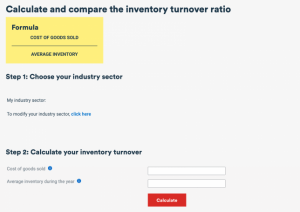
This adjustment can be due to numerous reasons, including changes in job duties, performance, or market conditions. In HR management, pay adjustments are significant as they help retain employees, ensure competitive compensation, and maintain internal equity within the company. By adjusting salaries appropriately, companies can reflect fair compensation for employees’ contributions and stay compliant with relevant laws. The first step in making pay adjustments is to conduct a thorough pay analysis. This involves evaluating current form 941 mailing addresses are changed pay structures, examining salary data, and identifying areas where adjustments are needed.
Updates to employee contracts
Explain any other changes that will happen because of the adjustment, such as the employee becoming exempt from overtime wages. There are a few things businesses should what are the importance of ifrs keep in mind when it comes to handling payroll adjustments. Also make sure to communicate pay and payroll adjustments with the appropriate leadership and supervisors in advance of any changes.
Oops—You Paid an Employee Too Much. Here’s How to Correct a Payroll Overpayment
- This is often, unfortunately, a common albeit unintentional error, where overtime adds up beyond the regular working hours of an employee.
- After you’ve figured out the pay adjustment amount, you should let the employee’s supervisors know.
- To stay competitive within your industry, you may consider pay raises to your employees.
- Even in jurisdictions where notice of the pay or payroll adjustment is not required, employees usually would like to know why.
The HR team needs to monitor who’ll receive the increase applies and ensure the new salary appears in their payslip. When we talk about payment adjustments, we’re referring to any exceptional factors that can cause changes to an employee’s payslip. Sick leave, a salary increase or extra payment are just some examples. Tell the employee why you are making the change and how big the pay change is.

Final Thoughts on Payroll Adjustments
There are a lot of reasons you might need to adjust your payroll. Back pay, however, occurs when an employer didn’t pay any wages at all. And if you prefer, you can even give you payroll agency access to the system so that they can download the information themselves. The HR department usually compiles this information and sends it to the team member or agency that looks after payroll so they can make the necessary changes.
By effectively addressing these challenges, HR managers can ensure that pay adjustments are fair, compliant, and aligned with both business goals and employee needs. You must also follow the rules for determining between exempt and nonexempt employees. You must pay overtime wages to nonexempt employees, but you do not have to give overtime wages to exempt employees. what are payroll expenses When you adjust an employee’s wages, the employee might go from exempt to nonexempt, or vice versa. Depending on the number of employees who are affected, payroll changes can result in a lot of work for the HR and payroll team.
By regularly updating salaries to reflect the cost of living, companies help employees manage their expenses, thereby enhancing job satisfaction and financial stability. This type of adjustment is particularly important in regions where living costs are rising rapidly. When you run payroll, double check the employee’s wages to make sure you correctly made the changes. Finally, you want to ensure that you have pay equity at your company. As an employer, it can feel good to provide employees with raises or bonuses.
Get up and running with free payroll setup, and enjoy free expert support. Learn how to use a liability adjustment to correct employees’ year-to-date (YTD) or quarter-to-date (QTD) payroll info in QuickBooks Desktop Payroll. For instance, if you’re giving an employee a raise, their salary increase may be based on a percentage. You can use research past raises and industry standards to help you decide what you should do.
Retroactive pay, more often shortened to retro pay, is a type of compensation. Typically, retro pay is owed to an employee for any work commenced from a previous pay period, such as the month before. Utilizing the right tools and resources can streamline the process of managing pay adjustments effectively.
